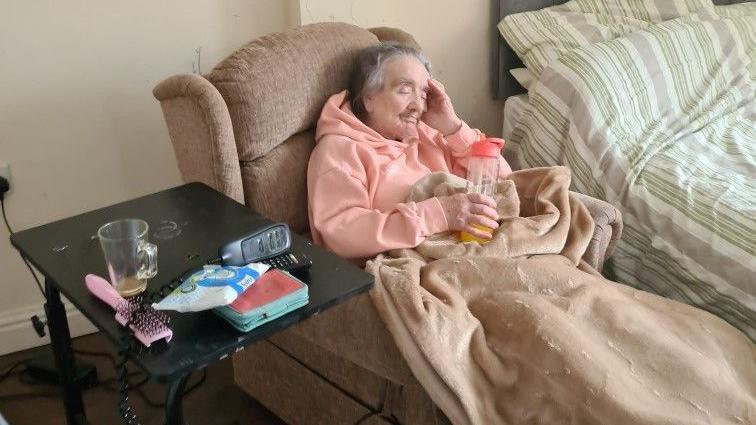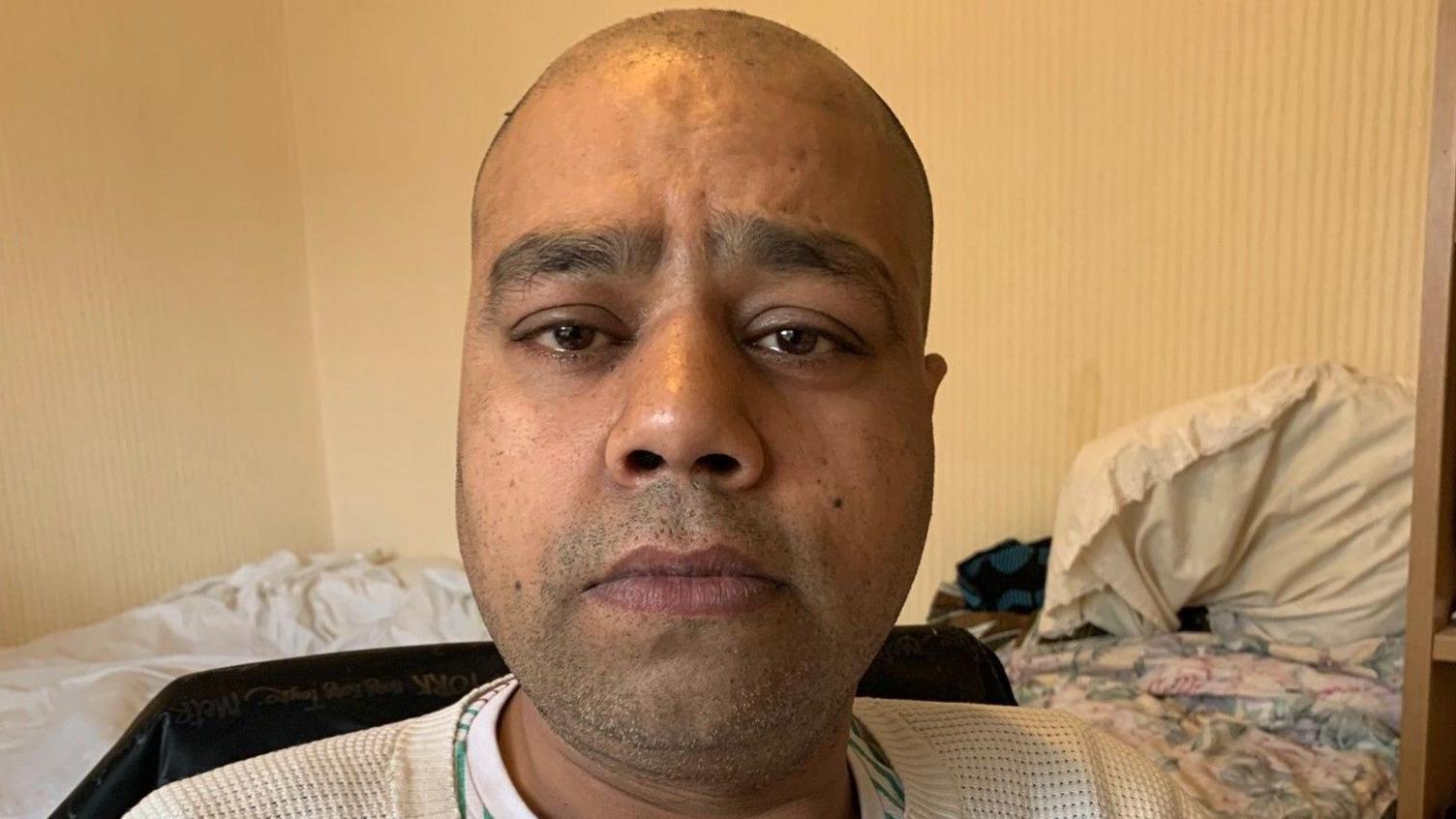'Order to repay my carer allowance dehumanised me'

Mark O'Connor has been asked to pay back almost £16,000 in Carer's Allowance
- Published
Imagine giving up the life you used to live to look after a loved one. The work is hard and the hours are long. Then the subject of your care dies, and amid the grief, come decisions on what to do next. Except the biggest decision is one you never saw coming - how to pay back £16,000 the government says you've been overpaid in Carer's Allowance.
That's the experience of Mark O’Connor, 65, from Smith’s Wood in Solihull. He said he acted properly and with transparency throughout the process, only to end up feeling like he'd been accused of wrongdoing - an experience he described as dehumanising.
He appears to have been caught out by breaking income thresholds in what he believes is a confusing system. The government says the payment process is now being probed with a view to helping carers avoid similar problems in future.
In the meantime, Mr O'Connor has a huge bill he doesn't know how to settle. He's not so much questioning the ruling that he's been overpaid. But he is querying how such a shock was allowed to befall him, and so long after the fact. He is not alone.
Under the system, people who care for someone for more than 35 hours a week are entitled to a weekly £81.90 allowance.
But there's a limit on how much they can earn from working a paid job at the same time, and the Department for Work and Pensions (DWP) wants to recover money from about 100,000 carers who it says have been overpaid.
Last month, however, the DWP launched an independent review after families claimed repayments had pushed them into hardship.
From April, working carers will be able to earn £196 per week and still claim allowance – an increase of about £45 per week on the previous earnings threshold.
Mr O'Connor's experience, though, began in 2019. That's when he became carer for his mother Rita, who died in 2023.
During the period, in the year before her death, he informed a job centre of his intention to return to paid employment, going on to find a job in care in addition to the separate duties he carried out for his mother. He said he reminded the job centre he was his mother’s carer for which he had already secured an allowance.
'No humanity'
Contact from the DWP followed after which point, he said, they became aware he had a private pension, although one, he added, he was not drawing. And somewhere in the mix, Mr O'Connor explained, he seemed to have busted an earnings threshold.
He said two years passed between contacting the job centre and a letter informing him repayments were required. He was, he said, struggling to understand procedure and felt like a "fool" as he navigated a "frightening" situation.
“You’re fighting a faceless system," he said. "You feel dehumanised [and] you become a number. There's no humanity in it."

Mark O'Connor began caring for mother Rita in 2019
Mr O’Connor said having to repay the money would wipe out savings, adding he had been informed by his bank his mother’s home could be seized.
But he said he felt five years ago he had no choice but to become his mother's carer, as he didn't want her to be placed where nobody knew her.
"Someone has to understand there is a need for people to be supported at home," he said.
"[The system] doesn’t work at the moment. It destroys us and it destroys families. It’s horrible."

Bally Dhanda, from Handsworth, has also been asked to hand back money
Bally Dhanda, from Handsworth, Birmingham, has also received a repayment demand - for £5,000 - after being overpaid allowance.
The 46-year-old, who looked after a cousin with a mental health condition, claimed he was accused of fraud by a job centre after taking work as a waiter.
"At the end of the day I wasn’t hiding anything," he said. "I went straight to the job centre [and] told them I have a job and to stop my benefits. But they didn’t pass the information on.”

The government has announced a review of matters linked to overpayment
Charities have been advising impacted families, many of whom are struggling to both repay the money and navigate a system while still giving round-the-clock care to a loved one.
Melanie Boag, from Carers Trust Heart of England, said she welcomed the government's review but feared lasting damage for people.
“I think this issue will only push back carers again, stopping them applying for benefits they’re entitled to because of their own increased anxieties," she explained.
A Government spokesperson said: “Our country would grind to a halt without the millions of carers who provide care and continuity of support for vulnerable people every day.
“We recognise the challenges they are facing which is why we announced that we are increasing the Carer’s Allowance earnings threshold, giving unpaid carers the opportunity to earn more and still receive the government support they deserve."
Get in touch
Tell us which stories we should cover in Birmingham and the Black Country
Follow BBC Birmingham on BBC Sounds, Facebook, external, X, external and Instagram, external.
Related topics
- Published16 October 2024

- Published23 May 2024

- Published16 May 2024
